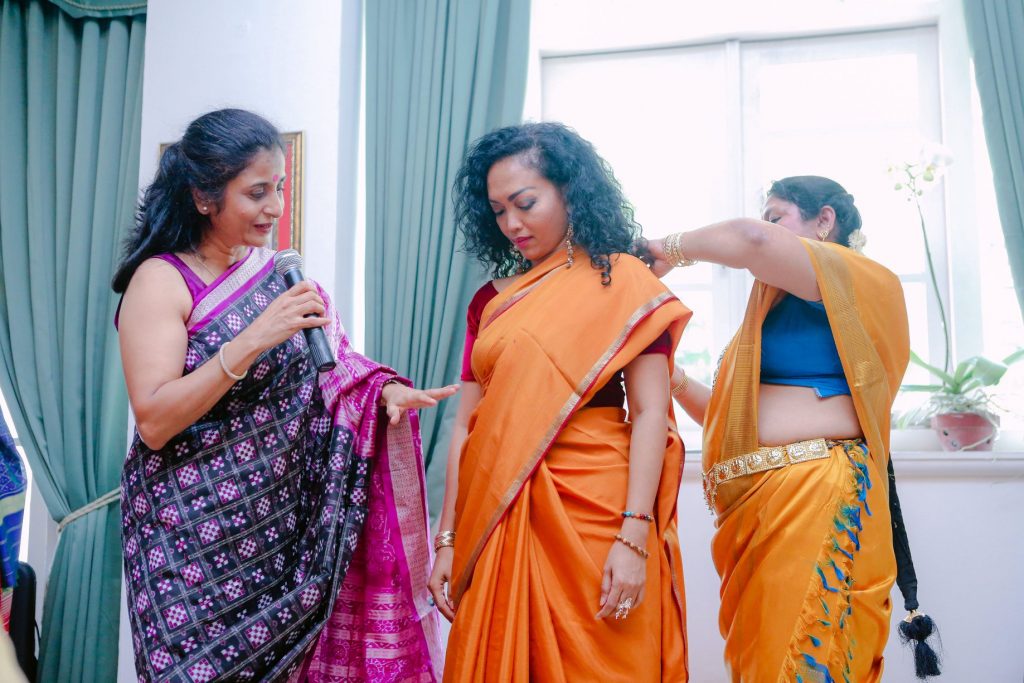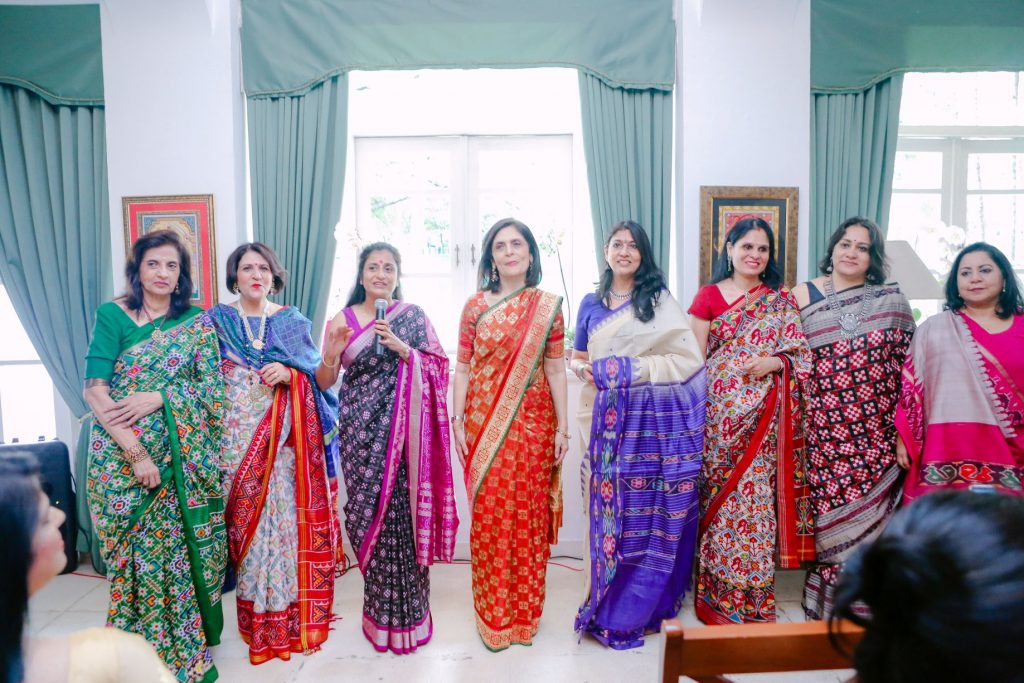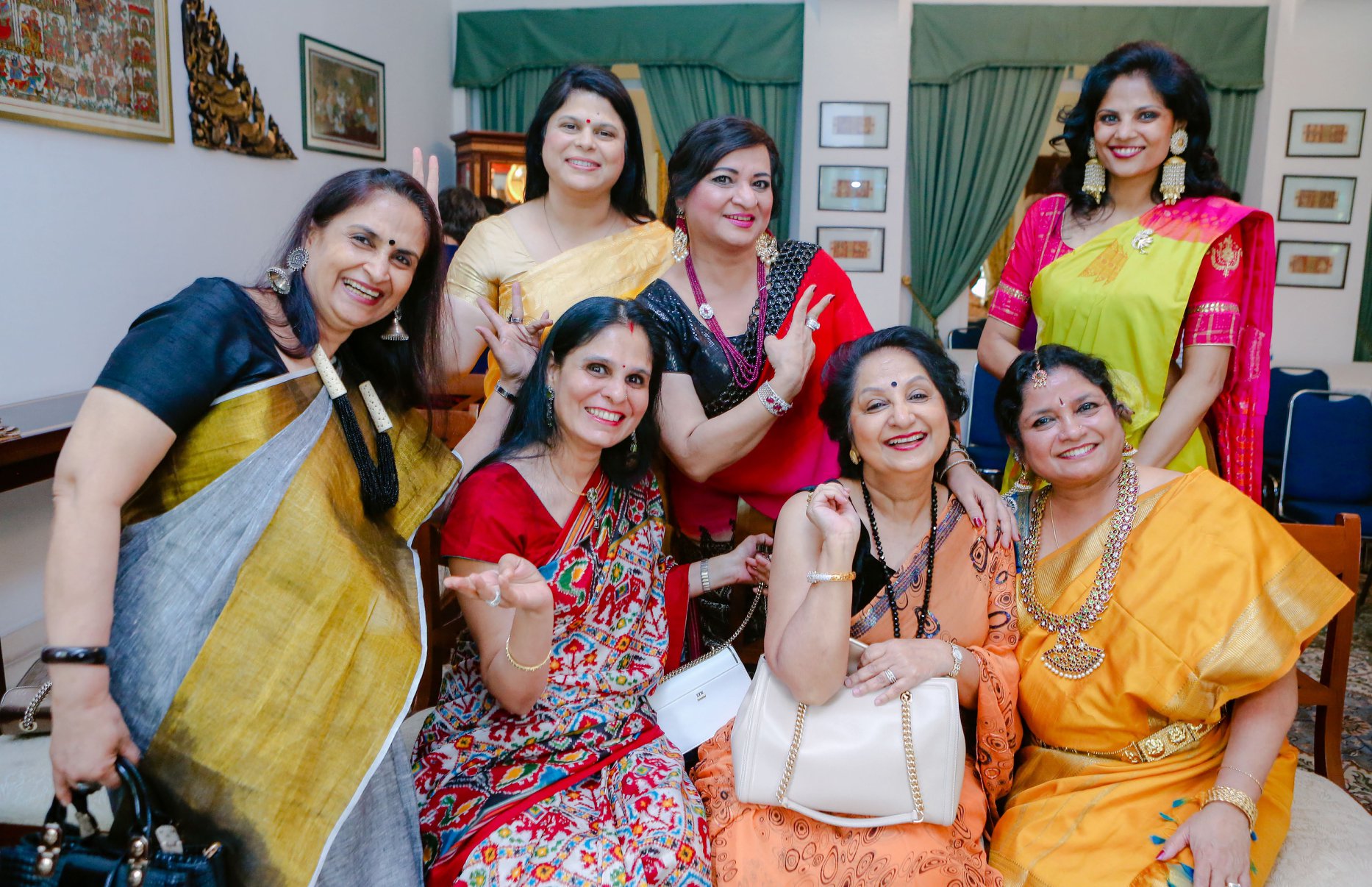Indoindians Saree Story is a celebration of of this 5000 year old garment.The sari was first mentioned in the Vedas (Rig Veda), the oldest Hindu text dating back to 3000 B.C., although it is possible that in their original form, they were worn even earlier in the Indus Valley Civilization.
Whether it’s a 6 yards or a 9 yard saree, traditional or modern they all hold a mystique and grace that attracts woman globally towards this garment. We say with pride that saree today is a global garment worn by all with pleasure.
It’s this love for Saree that brings us together, to share our passion about various kinds of sarees coming from different regions and types of weaves.
The saree is a long strip of cloth, usually five to nine yards, wrapped around a woman’s waist and over her shoulder, and worn over a cropped, short-sleeved blouse and a petticoat skirt. There are many ways to wrap a sari, depending on region, social class, and personal style.
Every sari has a design theme. The main part of the sari usually has a decorative border on three sides: on the two longitudinal sides, and then on the end piece (the pallav/pallu that goes over the shoulder) which builds on the two border designs in a sort of amplification or climax of the design.
Shanthi Sheshadari demonstrated the NIvi style saree draping.


Ikat sarees are very popular and a really fascinating weave, which universally symbolizes wealth, power and prestige. From ancient trade ties to a fashion statement across 30 countries and shared textile art especially between India and Indonesia. A visually beautiful and artistic, textile dyeing and weaving technique involves specific computations that focus on mathematical symmetry – where every inch is calculated and connected.
The very term ikat is derived from Indonesian mengikat, meaning “to tie” – a reference to the distinctive technique used to create them. A complex, skill-intensive process of marking, tying and dyeing the design into the yarn.
The saree maybe a simple piece of fabric but it has thousands of years of history and culture attached to it. The different weaves, designs and draping styles make it absolutely fascinating.
Interested in being a part of the Indoindians Saree Story? Send us an email at event@indoindians.com





